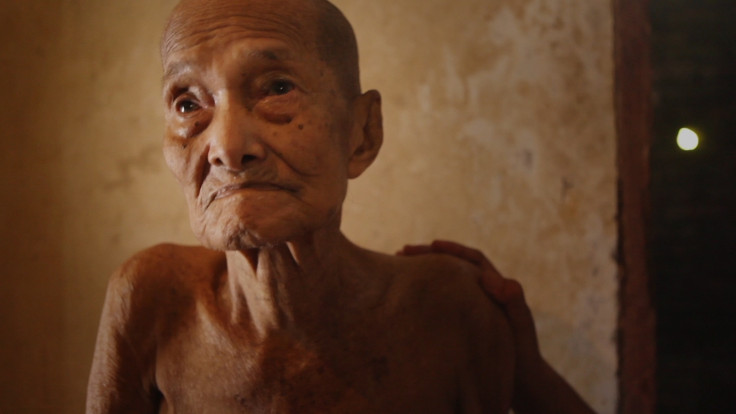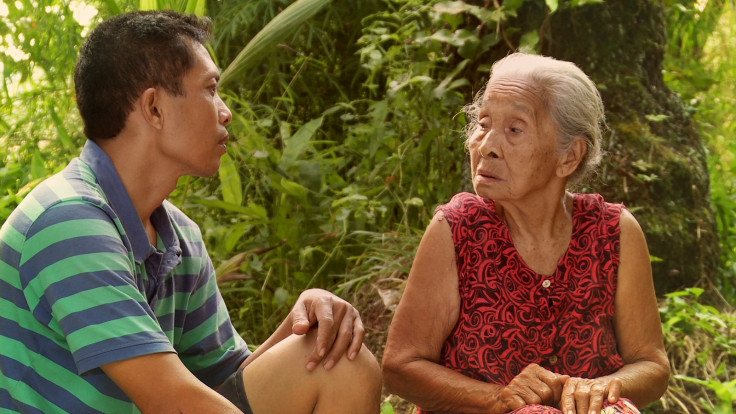The Look of Silence: How one filmmaker made Indonesia reassess its bloody past

"It was as if I was in Germany after the holocaust, but the Nazis were still in power and the rest of the world was celebrating their actions while they took place."
Joshua Oppenheimer is describing to IBTimes UK what life was like living and working in Indonesia for the past decade. The filmmaker, and recent recipient of a MacArthur 'genius grant', dazzled audiences back in 2013 when he released The Act of Killing, a surreal and sickening documentary about the Indonesian mass killings of the 1960s, where over a million alleged communists were slaughtered.
Oppenheimer spent years getting to know some of the perpetrators behind the genocide, who are still celebrated in the country as heroes, before asking them to re-enact the murders for the camera in the style of their favourite films, be it a western, a film noir or a musical.
Now the director returns with his sequel, The Look of Silence, which this time focuses on survivors who lost their loved ones in the killings.
"I realised that I must make two films about this. One dealing with the lies and fantasies the perpetrators tell themselves so that they can live with themselves, and a second film about what it does to human beings to have to live half a century in fear," he says.
Looking for answers
The protagonist of his new picture is Adi, an optometrist who was born the year of the anti-communist purges. The killings have haunted his family his entire life, as his older brother Ramli was one of those butchered at a place called Snake River. The film follows Adi's conversations with the perpetrators to see if they feel any remorse for the murder of his brother.
"Adi could never have become involved as my main collaborator in the project since 2003 if he had memories of the trauma of the killings, he would be too afraid like the rest of his family. He didn't know what happened because his parents were so traumatised they never told him. They tried to protect them from the information, but he needed answers as to what happened and why his parents acted this way and so he saw my filmmaking as an answer to that," says Oppenheimer.
Confronting these perpetrators, in a military-ruled country where the killers are not only celebrated but hold key positions of power, was inherently dangerous for both Adi and his family. Oppenheimer reveals that his crew took extreme measures to ensure Adi's safety throughout the shoot.
"We took many precautions to ensure the family's safety while we were shooting, including having his family at the airport during each of the confrontation scenes, ready to evacuate them at any moment we thought it might be even remotely risky. So if anything had gone wrong, they would have been able to leave before anything happened," he says.

Hope for the future
Adi is ultimately left frustrated in his hopes for reconciliation with those responsible for his brother's death, as those he speaks to either continue to boast of the killings or become defensive when interrogated on the subject.
"I think I recognised something that we all know about boasting but always forget when people boast to us, that boasting is a sign of insecurity. People boast because they're compensating for doubt," says Oppenheimer.
"In the film we see none of the perpetrators have the courage to give Adi the apology that he is so longing for. They become afraid, not of Adi, not of me, but of themselves, their own conscience. They're afraid of what they see in the moral mirror of Adi's questions," he adds.
Despite this, one scene from the film does offer hope for the future, in which the daughter of one of the perpetrators apologises to Adi after hearing of the brutal and barbaric way in which his brother was killed. Oppenheimer believes that moments like this show that whilst the perpetrators themselves remain unapologetic, the younger generation are willing to discuss the impact of the atrocities.
I realised that I must make two films about this. One dealing with the lies and fantasies the perpetrators tell themselves so that they can live with themselves, and a second film about what it does to human beings to have to live half a century in fear."
"Her apology is why the film is making the impact it's making in Indonesia because of the hundreds of thousands of people who have now seen the film, many will be from families of perpetrators.
"And they would have seen the daughter's dignified example that dialogue is now both possible and necessary if they want their children to live in a democracy where people are not afraid.
Such reconciliation will still take time. Adi and his family have had to be relocated to another part of Indonesia, while Oppenheimer himself admits that it is no longer safe for him to return to the country. But he is confident that with the release of these two films, the open wound that has scarred families across Indonesia for the past 50 years, can finally start to heal.
"The first chapter helped catalyse a transformation in how the country talks about its past. The second chapter has come into that space and shown ordinary Indonesians how torn the social fabric is and how urgently truth, reconciliation and justice are needed," he says.
"The third chapter hasn't been written yet and I'm not the one who's going to write it. It will be written by the people of Indonesia in the future."
The Look of Silence will be released in UK cinemas nationwide from 12 June.
A nationwide screening of the film + satellite Q&A with Joshua Oppenheimer and award-winning filmmaker Louis Theroux will take place in selected cinemas across the UK and Ireland at 6pm on Sunday 14 June.
© Copyright IBTimes 2025. All rights reserved.






















